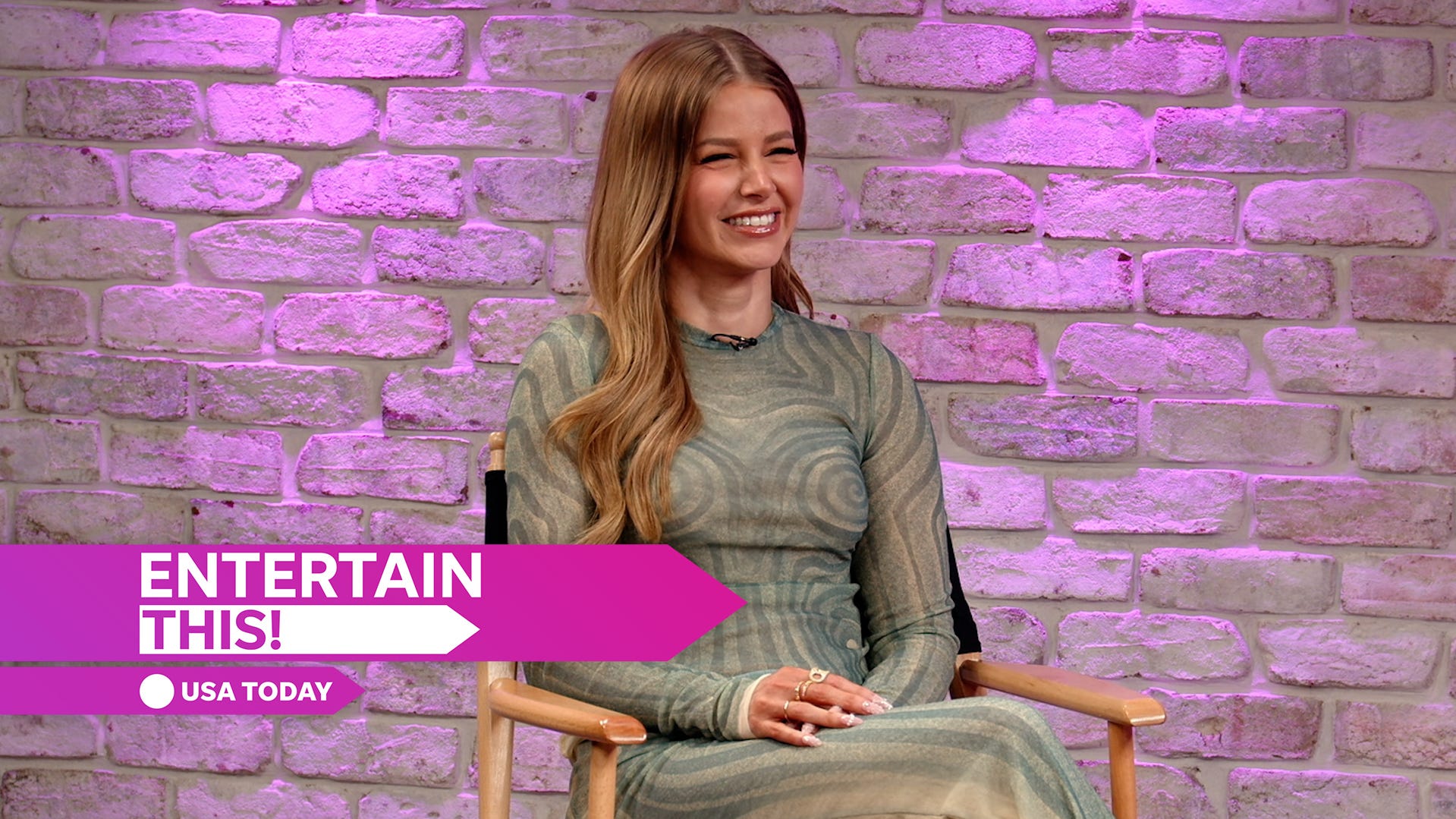Cierra Ortega's 'Love Island' apology, cancel culture and why Gen Z has a big problem
Gen Z has taken over the newest season of “Love Island USA” − and it’s causing some major problems.
Cierra Ortega, a 25-year-old content creator, has left the villa due to “personal” situation, days after past social media posts surfaced online that showed her using a racial slur. On July 9, she issued an apology for having used the "incredibly offensive and derogatory term."
Ortega isn’t the first Season 7 Islander to be removed from the villa following controversy. Another contestant, Yulissa Escobar was abruptly ousted from the villa on just the second day, after clips of her using a racial slur on a podcast resurfaced. She later apologized, saying at the time she didn't fully understand "the weight, history or pain behind it.”
There’s no excuse for using a racial slur — and it’s important to recognize the hurt it inflicts among the affected communities. But two Islanders being ousted in one season begs the question: Are those “digital footprints” teachers and parents warned of finally coming back to haunt Gen Z?
How online sleuths impact reality TV
The open secret of reality TV is that the producers control the narrative. Conversations are cut down, some couples are poised to be the favorites, while other contestants get pigeonholeed as the villain.
However, as we dive deeper into surveillance culture in the digital age, producers are met with an inability to control that narrative online. When conflict arises, producers can’t simply limit a contestant’s screen time to get the world to stop talking about them. The drama takes on a life of its own outside the villa and on social media, leading to contestants being "canceled" even while the show is airing in real-time.
On “Love Island USA” Season 7, most of the contestants are between the ages of 21-27, making them the first group of Gen Z islanders who have fully grown up in the digital age. Their entire lives have been documented on X (at the time, Twitter), Instagram, Facebook, Snapchat and TikTok.
In earlier seasons, producers and contestants never had to think about what could be dug up from a contestant's social media history. And if an incriminating video existed, there wasn’t as big of a platform to share it on. Now, audiences are more connected than ever, and algorithmic feeds on apps like TikTok allow for widespread discourse on concentrated topics, continuously pouring gas on the flames of online drama.
Because reality TV is meant to be authentic and unfiltered, “it’s much easier for people who watch it regularly to connect with these characters and start to invest in them,” explains media psychologist Pamela Rutledge.

This can also lead viewers to form parasocial relationships with contestants, which according to Elizabeth Perse, a professor emeritus of communication at the University of Delaware, is the “illusion of friendship" with a public persona. When reality stars act in a way that is offensive or seemingly out of character, audiences feel betrayed.
Once contestants return home, the attention can be overwhelming, especially when it turns hostile.
“Even though contestants don’t know the commenters on social media personally, the relentless and pointed attacks can feel very personal,” trauma and relationship therapist Jordan Pickell previously told Paste BN. “Human brains aren’t equipped to distinguish between real-life risks to safety and online attacks.”
Ortega's departure sheds light on Asian hate
Experts say referring to "cancel culture" as "accountability culture" could help hold people accountable for their wrongdoings — allowing room for growth while still enduring the consequences of their actions.
Ortega appeared to use a slur, which refers to people of Asian descent, to describe her eyes in a 2015 Instagram caption. Another Instagram story using the slur circulated via an unverified screenshot, which appeared to be as recent as 2023, according to People.
Many Asian Americans have taken this controversy as an opportunity to educate people about the history of the slur and why it is hurtful to Asian communities.
“Anytime you say these horrible things like Cierra did on her (Instagram story), it really does hurt,” one TikTok content creator said.
“Cierra from ‘Love Island’ got Botox to make her eyes look less like my eyes,” said another in a video with 8M views. “Imagine being in a world where you’re looking at media and you don’t see people with your eye shape, and instead you’re seeing people get surgery to alter your eye shape.”
Belle-A Walker, a contestant who was dumped earlier this season, unfollowed Ortega on Instagram and commended “Love Island USA” producers for "taking a stand.”
“Asian hate is oftentimes overlooked and dismissed. But being a first-generation American, I have personally witnessed and experienced how real and hurtful comments like these are,” Walker shared via an Instagram story on July 7. ”It is my hope that this situation can help shed light on how big of an issue anti-Asian hate really is.”
Can cancel culture go too far?
On July 7, fellow ousted contestant Escobar posted a TikTok expressing concern for Ortega’s mental health.
“I’m not justifying what I did, I know what I did and what I said was wrong, and I know what Cierra said was wrong,” Escobar said.
“Looking at those messages I was getting, I was honestly scared to come home,” she continued. “I was like, is something going to happen to me? Is someone going to do something to me? Because it was just a lot to take in, and even my family was worried.”
In a statement posted by Ortega’s family to her Instagram story on July 6, the family asked that people allow her to take accountability, saying that the “attacks on her family, her friends, even her supporters” were “heartbreaking” and “uncalled for.”
As to where the show can go from here? Maybe take viewers' advice and cast some “regular people,” not influencers, on the show next season.
Contributing: David Oliver, Taijuan Moorman